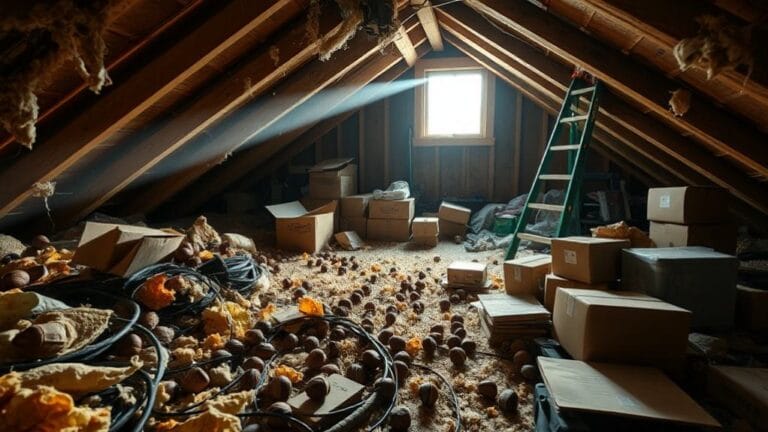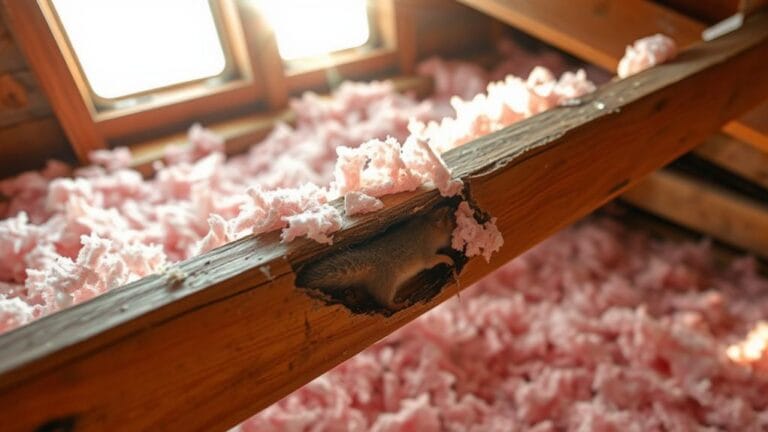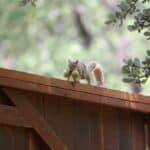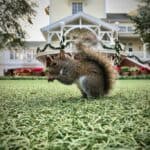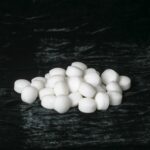Coffee grounds have long been touted as a natural squirrel repellent, with claims that their strong scent and bitterness deter these furry creatures. However, it’s important to examine the validity of such claims and understand the effectiveness of using coffee grounds to keep squirrels away.
The theory behind using coffee grounds as a squirrel repellent is that the strong odor and bitter taste of coffee can repel squirrels and discourage them from entering specific areas. This belief stems from the assumption that squirrels dislike the smell and taste of coffee.
However, scientific evidence to support these claims is limited. While there are anecdotal accounts of coffee grounds deterring squirrels, there is no definitive research or studies that conclusively prove their effectiveness as a squirrel repellent.
When it comes to the effectiveness of coffee grounds on squirrels, opinions vary. Some people claim success in using coffee grounds to keep squirrels away, while others report no noticeable impact. Factors like squirrel behavior, population, and food availability in the area can also influence the effectiveness of coffee grounds as a deterrent.
It’s essential to note that using coffee grounds alone may not be a foolproof method for squirrel control. there are no known risks or side effects of using coffee grounds as a squirrel repellent, making it a relatively safe option to experiment with.
If coffee grounds don’t seem to do the trick, there are alternative methods to deter squirrels. Natural repellents, such as peppermint oil or vinegar, can be used to create deterrent sprays.
Physical barriers like mesh or fences can prevent squirrels from accessing certain areas, and squirrel-proofing techniques, such as securing bird feeders and sealing entry points, can also help control squirrel activity.
Key takeaway:
Table of Contents
- Coffee grounds may act as a natural squirrel repellent: There is a theory that the strong scent of coffee grounds can deter squirrels from invading certain areas. This could be a potential method to keep squirrels away from specific locations.
- The scientific evidence is inconclusive: While some people claim success with using coffee grounds as a squirrel repellent, there is currently no scientific evidence to fully support this theory. More research is needed to determine the effectiveness.
- Consider alternative methods for squirrel control: If coffee grounds do not work or if you prefer other methods, there are natural repellents, physical barriers, and squirrel-proofing techniques available to deter squirrels from your desired areas.
Can Coffee Grounds Keep Squirrels Away?
While some people claim that coffee grounds can keep squirrels away, there is limited scientific evidence to support this notion.
Here are a few points to consider regarding the use of coffee grounds to deter squirrels:
- Repellent Properties: Coffee grounds contain caffeine, which is known to have a bitter taste and strong scent. Some believe that squirrels dislike these characteristics and will avoid areas where coffee grounds are present.
- Varying Results: The effectiveness of coffee grounds as a squirrel deterrent can vary. Some individuals report success in deterring squirrels, while others have found no significant impact.
- Temporary Solution: If coffee grounds do have any deterrent effect, it is typically temporary. Squirrels may eventually become habituated or simply ignore the scent and taste over time.
- Additional Measures: Using coffee grounds alone may not be sufficient to keep squirrels away. It is often recommended to employ a combination of strategies, such as using squirrel-proof feeders, securing garbage cans, or planting squirrel-resistant plants.
- Considerations: Before using coffee grounds as a squirrel deterrent, it is important to consider the potential negative effects. Coffee grounds may alter soil pH, which can impact plant health. Caffeine can be harmful to other animals and should be used with caution.
While coffee grounds might have some anecdotal success in deterring squirrels, it is not a guaranteed or scientifically proven solution.
It is best to explore a combination of methods and consult with local wildlife experts for more effective and sustainable squirrel management strategies.
What is the Theory Behind Using Coffee Grounds as a Squirrel Repellent?

The theory behind using coffee grounds as a squirrel repellent is based on the strong smell and bitter taste they possess.
It is believed that caffeine and diterpenes found in coffee grounds can create an unpleasant sensory experience for squirrels, leading them to avoid the treated areas.
These compounds may either mask the scent of food sources or disrupt the squirrels’ sensory perception, making the environment less appealing to them.
While anecdotal evidence supports the use of coffee grounds for this purpose, there is currently a lack of scientific evidence to confirm their effectiveness.
Factors such as individual squirrel behavior, the concentration of coffee grounds used, and the specific environment could influence their effectiveness.
To use coffee grounds as a squirrel repellent, scatter them in garden beds or near bird feeders where squirrels are causing trouble. However, it is important to note that coffee grounds should not be solely relied upon for squirrel control.
For better results, it is recommended to combine deterrents like natural repellents, physical barriers, and squirrel-proofing techniques alongside the use of coffee grounds. By incorporating these additional methods, the chances of successfully deterring squirrels can be enhanced.
Coffee grounds may be great for brewing a cup of joe, but as a squirrel deterrent, the evidence is as weak as a decaf espresso.
Is There Any Scientific Evidence to Support the Claim?
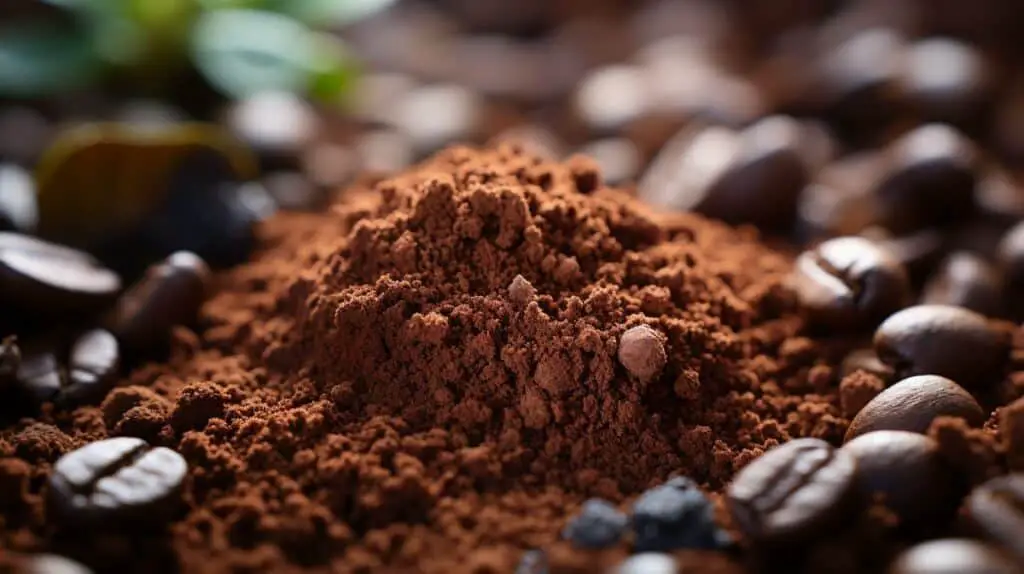
Coffee grounds as a squirrel repellent is a popular notion, but is there any scientific evidence to support this claim? While many people swear by its effectiveness, there is currently no scientific research specifically addressing the use of coffee grounds as a squirrel deterrent.
There is some general scientific knowledge that can shed light on the topic. Squirrels have a heightened sense of smell and are known to be deterred by strong odors.
Coffee grounds have a strong smell due to the presence of compounds such as caffeine and diterpenes. It is believed that the strong odor of coffee grounds might make squirrels avoid areas where they are present.
Even though there is no scientific evidence to directly support the claim, anecdotal evidence from gardeners and homeowners suggests that coffee grounds can help to deter squirrels in certain situations.
Therefore, while the scientific evidence may be lacking, it is worth giving coffee grounds a try if you are dealing with a squirrel problem in your garden or home.
While there is no scientific evidence to support the claim that coffee grounds repel squirrels, many individuals have found success using this method. It may be worth experimenting with coffee grounds to see if they are effective for deterring squirrels in your specific situation.
Coffee grounds might repel squirrels, but they probably won’t keep them away for good.
The Effectiveness of Coffee Grounds on Squirrels
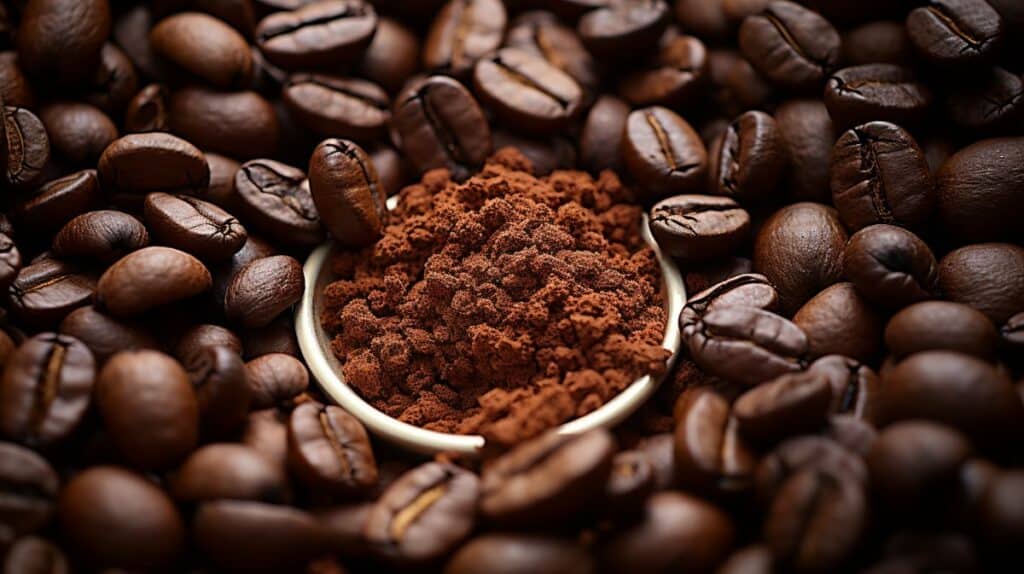
The effectiveness of coffee grounds on squirrels in keeping them away is debated among experts and anecdotal evidence. Here are some key points to consider:
- Scent Deterrence: Coffee grounds have a strong scent that some believe may deter squirrels. The strong aroma might mask the scents that attract squirrels to certain areas, making them less likely to visit.
- Variable Results: The effectiveness of coffee grounds as a squirrel deterrent can vary. Some people claim success in keeping squirrels away by sprinkling coffee grounds around their gardens or in areas where squirrels are unwanted. Others report no significant impact on squirrel behavior.
- Temporary Solution: Coffee grounds may provide a temporary deterrent effect. Squirrels might be initially deterred by the scent, but they may eventually become accustomed to it or find other food sources that override the repelling effect.
- Environmental Factors: Environmental conditions, such as rain or wind, can affect the longevity of the scent and the overall effectiveness of coffee grounds as a squirrel deterrent. Heavy rainfall or strong winds can quickly disperse the scent, reducing its deterrent effect.
- Alternative Strategies: While coffee grounds may have limited effectiveness, there are other strategies that can be more reliable for keeping squirrels away. These include using physical barriers like fences or netting, planting squirrel-resistant plant varieties, or using squirrel repellents specifically designed for this purpose.
It is important to note that scientific studies specifically examining the effectiveness of coffee grounds on squirrels are limited.
Therefore, it is advisable to consider coffee grounds as a potential deterrent, but to also explore other proven methods for effectively managing squirrel activity if it becomes a problem.
Do Coffee Grounds Really Repel Squirrels?
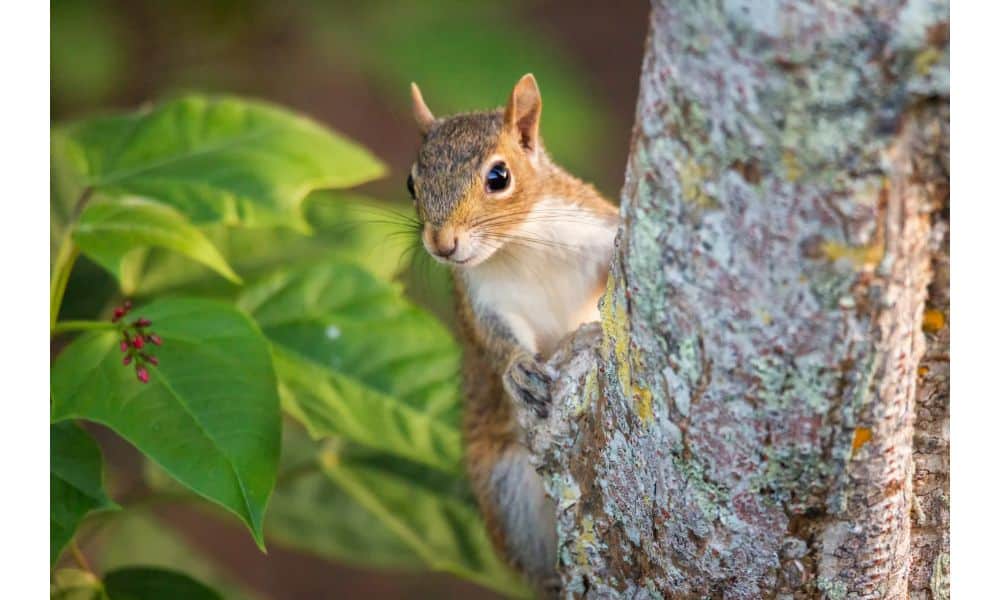
Coffee grounds are often touted as a natural repellent for squirrels. However, the question remains: do coffee grounds really repel squirrels?
The answer is not clear. While some people claim success in using coffee grounds to deter squirrels, there is no scientific evidence to definitively support this claim.
Squirrels are attracted to certain smells, and it is believed that the strong aroma of coffee grounds may help deter them. However, it’s important to note that squirrels can quickly adapt to new scents, and they may not be bothered by coffee grounds for an extended period.
The effectiveness of coffee grounds can also be influenced by other factors. For example, the amount of coffee grounds used and the frequency of application may impact their efficacy. Additionally, different squirrels may have varying reactions to coffee grounds, making it a trial-and-error process.
If you are seeking alternative methods to deter squirrels, there are various options to consider. Natural repellents like peppermint oil or predator urine have shown effectiveness in keeping squirrels away.
Physical barriers such as fences or netting can also prevent squirrels from accessing certain areas. Implementing squirrel-proofing techniques, such as using squirrel-resistant feeders or removing potential food sources, can further help manage squirrel activity.
While some individuals may tout success in repelling squirrels with coffee grounds, it is crucial to acknowledge that no definitive evidence currently supports this claim. Therefore, exploring other methods may be necessary to effectively deter squirrels from your property.
Are There Any Other Factors That Influence the Effectiveness of Coffee Grounds?
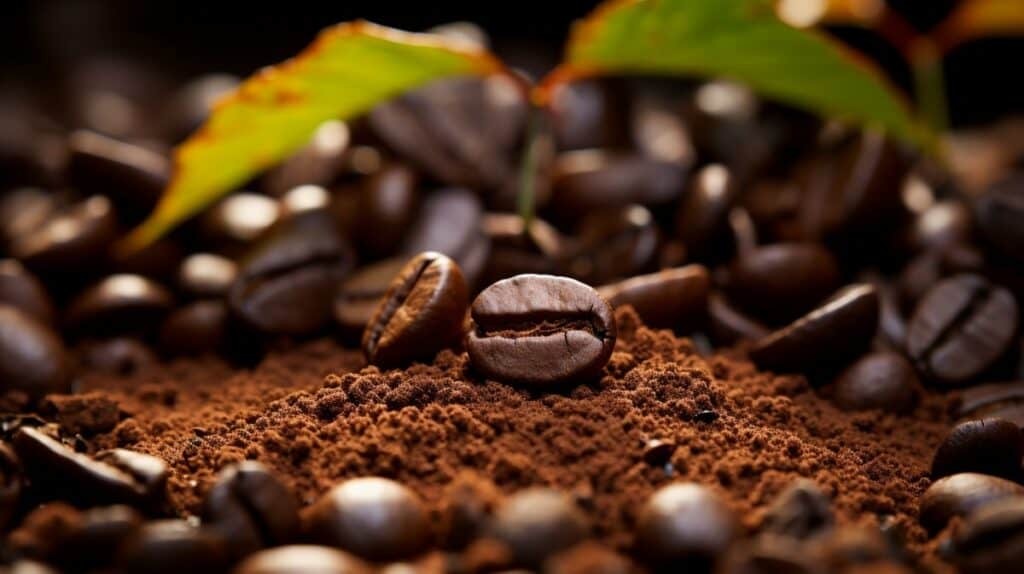
There are indeed other factors that can influence the effectiveness of coffee grounds in repelling squirrels. The freshness of the coffee grounds can play a role.
Coffee grounds that are more recently used or have a stronger aroma may have a greater impact on deterring squirrels. The amount of coffee grounds used can also make a difference. Using a larger quantity of coffee grounds may have a stronger deterrent effect compared to using smaller amounts.
The location of the coffee grounds can also impact their effectiveness. Placing coffee grounds directly around the areas that squirrels frequently visit or where they are causing damage can be more effective in deterring them.
It is important to note that coffee grounds alone may not completely eliminate squirrel activity, so using them in conjunction with other methods can increase their effectiveness.
Other environmental factors such as weather conditions and the presence of alternative food sources for squirrels can also influence the effectiveness of coffee grounds. In areas with abundant food sources, squirrels may be less deterred by the scent of coffee grounds.
While coffee grounds can be effective in repelling squirrels, there are indeed other factors such as freshness, quantity, location, and environmental conditions that can influence their effectiveness.
It is recommended to experiment with different approaches and combine coffee grounds with other deterrent methods for the best results in keeping squirrels away.
Coffee grounds may repel squirrels, but be warned: they might just come back with a latte.
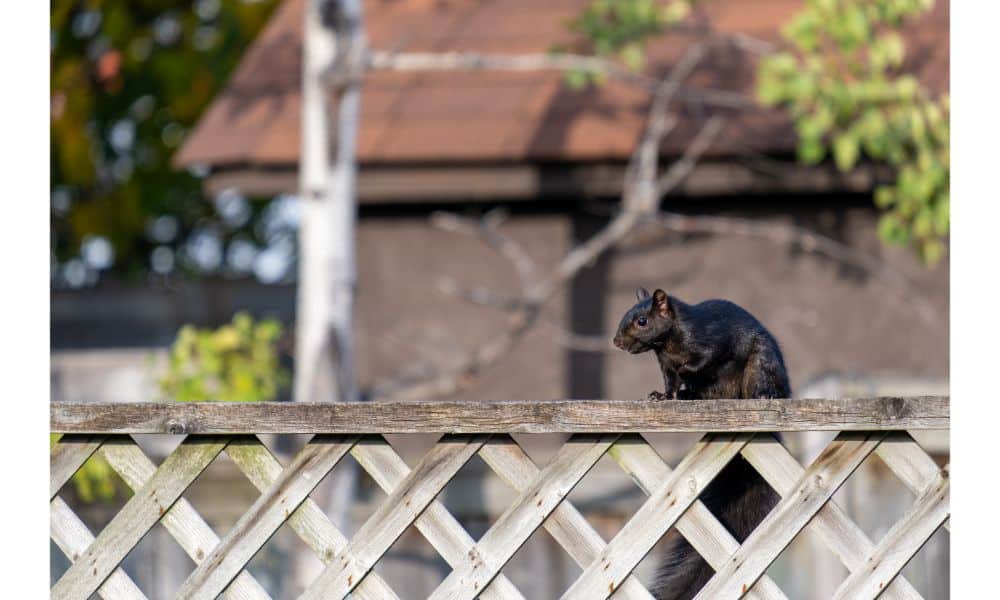
Are There Any Risks or Side Effects of Using Coffee Grounds?
While coffee grounds are often touted as a natural method to deter squirrels, it is important to consider the potential risks and side effects:
- Toxicity to Squirrels: Coffee grounds contain caffeine, which is toxic to squirrels in large amounts. If squirrels consume a significant quantity of coffee grounds, it can lead to health issues or even be fatal for them. Therefore, it is crucial to use coffee grounds sparingly and in a controlled manner.
- Impact on Plants: Coffee grounds can be acidic, and excessive use or direct application to plants can potentially harm them. Some plants may be more sensitive to the acidity of coffee grounds, so it is advisable to avoid using them on plants that are known to be sensitive to acid or require neutral soil conditions.
- Attracting Other Animals: While coffee grounds may have a deterrent effect on squirrels, they can attract other animals or pests. For example, raccoons or stray cats may be attracted to the smell of coffee grounds, leading to a different set of challenges.
- Unproven Effectiveness: The effectiveness of using coffee grounds to repel squirrels is not scientifically proven. While some people claim success with this method, others report that squirrels are not deterred by coffee grounds. It is important to understand that different factors, such as the specific squirrel species, local environment, and individual squirrel behavior, can influence the outcome.
Considering these risks and uncertainties, it is advisable to use caution when relying solely on coffee grounds as a squirrel deterrent.
It is recommended to consult with pest control professionals or explore other proven methods for effectively managing squirrel infestations or deterring them from specific areas.
Alternative Methods to Deter Squirrels
Looking to keep those pesky squirrels away? In this section, we’ll explore alternative methods to deter squirrels from invading your space.
From natural repellents to physical barriers and squirrel-proofing techniques, we’ve got you covered. Say goodbye to those furry intruders and reclaim your squirrel-free environment with these effective strategies.
No more coffee grounds debate, let’s delve into some squirrel-savvy solutions!
1. Natural Repellents
- Natural Repellents: Squirrels have a strong sense of smell, and peppermint oil is known to repel them. Mix a few drops of peppermint oil with water and spray it around areas where squirrels are causing trouble.
- Natural Repellents: Squirrels dislike the strong scent and taste of cayenne pepper. Sprinkle it around gardens, bird feeders, or any other areas where squirrels are a nuisance.
- Natural Repellents: Like peppermint oil, vinegar has a strong odor that squirrels find unpleasant. Create a solution of vinegar and water and spray it in areas where squirrels are present.
These natural repellents can help deter squirrels from your property without causing harm to them. It’s important to note that the effectiveness of these methods may vary depending on the specific situation and the persistence of the squirrels.
It’s also recommended to consistently reapply these repellents, especially after rain or heavy moisture, as they may lose their effectiveness over time.
In addition to natural repellents, it’s worth considering other methods such as physical barriers and squirrel-proofing techniques to prevent squirrels from accessing certain areas.
These can include installing mesh or netting, sealing off entry points, or utilizing squirrel-proof bird feeders. By combining different strategies, you can increase the chances of keeping squirrels away from your property.
Sometimes the best way to keep squirrels out is to build a wall, and I’m not talking about politics.
2. Physical Barriers
When it comes to deterring squirrels, physical barriers can be an effective method. Here are some examples of physical barriers you can use:
- Fencing: Install a sturdy fence around your garden or specific areas you want to protect from squirrels. Choose a fence with small openings that squirrels cannot squeeze through.
- Netting: Use netting to cover plants, trees, or bird feeders to prevent squirrels from accessing them. Make sure the netting is securely fastened to prevent squirrels from getting underneath.
- Pruning: Trim tree branches that hang over your roof or near windows to eliminate access points for squirrels to enter your home.
- Metal or plastic barriers: Place metal collars or plastic guards around tree trunks to prevent squirrels from climbing up and accessing bird feeders or nesting in trees.
- Motion-activated sprinklers: Install motion-activated sprinklers that will deter squirrels by spraying water when they come near. This can be an effective deterrent for both gardens and bird feeders.
Implementing physical barriers can help protect your property and garden from squirrel damage. By using these methods, you can create an environment that is less accessible and appealing to squirrels.
Back in the 1800s, as human settlements expanded, people started facing issues with squirrels invading their homes and causing damage to crops and properties.
It was during this time that the concept of physical barriers as a means to deter squirrels was developed. People began employing fences, netting, and other physical structures to keep squirrels away.
Over the years, these physical barriers have proven to be effective in preventing squirrel intrusion and protecting valuable assets.
3. Squirrel-Proofing Techniques
- Seal all entry points: Inspect your home for any openings that squirrels could use to access your property. Seal them off with materials such as caulk or wire mesh to prevent squirrels from entering.
- Install squirrel-proof bird feeders: If you have bird feeders in your yard, squirrels may be attracted to them. Use squirrel-proof bird feeders that are designed to keep squirrels from accessing the food.
- Trim tree branches: Squirrels can use tree branches as a way to access your roof or other areas of your property. Trim back branches that are close to your home to prevent squirrels from using them as a bridge.
- Use motion-activated sprinklers: Install motion-activated sprinklers in your yard to deter squirrels. When a squirrel enters the area, the sensors will detect their movement and activate the sprinklers, scaring them away.
- Remove potential food sources: Keep your yard clean of fallen fruits, nuts, and birdseed that could attract squirrels. Store garbage in tightly sealed containers to prevent squirrels from rummaging through it.
True story: A friend of mine had a problem with squirrels constantly getting into their attic. They tried various methods to deter the squirrels, including using coffee grounds around the entry points.
While the coffee grounds didn’t completely solve the problem, they noticed a decrease in squirrel activity.
Ultimately, sealing off the entry points and implementing squirrel-proofing techniques, such as trimming tree branches and removing food sources, were the most effective in keeping the squirrels away.
It’s important to remember that while coffee grounds may have some repellent properties, they are not a foolproof solution and should be combined with other squirrel-proofing measures for optimal results.
Some Facts About “Do Coffee Grounds Keep Squirrels Away?”:
- ✅ Squirrels can cause damage to yards and home foundations. (Source: Our Team)
- ✅ Coffee grounds can be an effective way to deter squirrels because they hate the smell. (Source: Our Team)
- ✅ Coffee grounds need to be replenished frequently, especially after rain, to maintain their effectiveness. (Source: Our Team)
- ✅ Used coffee grounds, whether decaf or regular, can be used as a squirrel deterrent. (Source: Our Team)
- ✅ Coffee grounds can also deter other animals like deer, chipmunks, and slugs. (Source: Our Team)
Frequently Asked Questions
1. Do coffee grounds keep squirrels away?
Yes, coffee grounds can be an effective way to deter squirrels from your yard and garden. Squirrels dislike the smell of coffee, making it a natural deterrent for them.
2. How do I use coffee grounds as a squirrel deterrent?
To use coffee grounds as a squirrel deterrent, spread them on the ground around the areas where squirrels are active, such as gardens or potted plants. You can also place them on top of bird feeders or around the base of feeder poles.
3. Are coffee grounds harmful to pets?
Yes, coffee grounds can be harmful to pets, especially in large doses. It is important to use coffee grounds in thin layers and monitor pets to avoid any potential dangers. If you have dogs or cats roaming in your yard, it is advisable to avoid using coffee grounds as a squirrel deterrent.
4. Can coffee grounds be obtained for free?
Yes, you can get coffee grounds for free from local coffee shops or use them from your own household. Many coffee shops give away used grounds as a soil amendment or for composting purposes.
5. Are there any other natural ways to keep squirrels away?
Yes, there are alternative methods to consider if coffee grounds are not the best option for you. Some options include using squirrel repellents, installing barriers, or seeking help from a local pest removal company.
6. How frequently do I need to replenish the coffee grounds?
Coffee grounds need to be replenished frequently, especially after rain, to maintain their effectiveness as a squirrel deterrent. Start by spreading coffee in the yard once a week and increase it if the squirrel problem persists.

